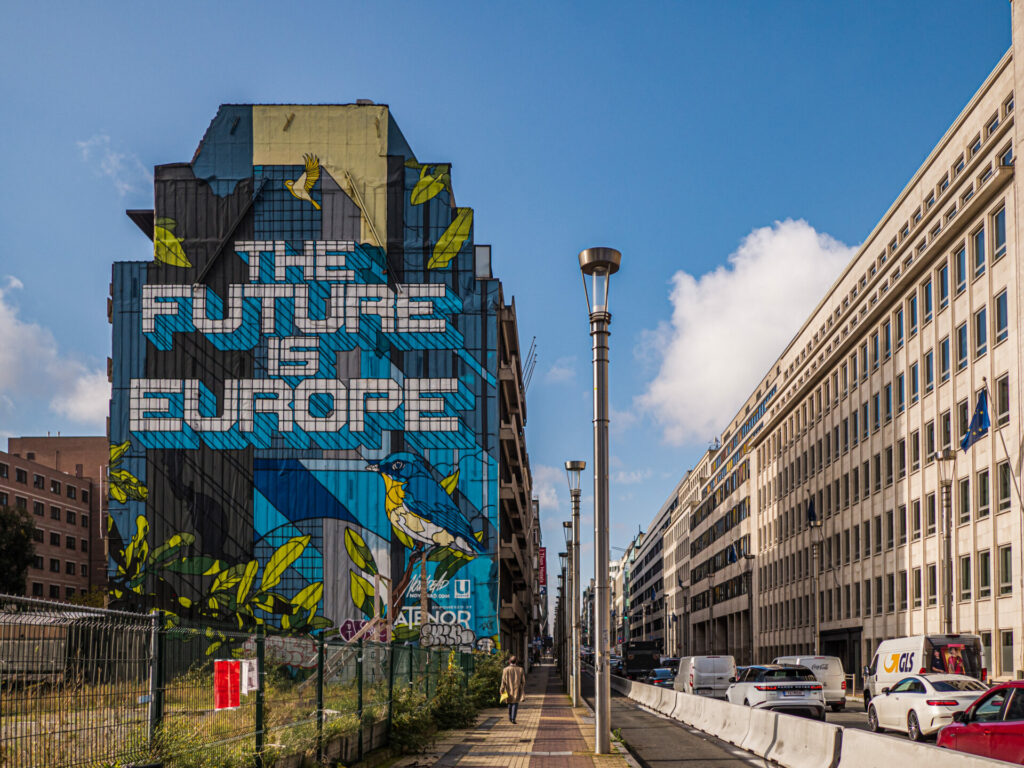Several of the European Commission buildings in Brussels' EU Quarter bought with the support of the Belgian Government will start being emptied this month in a bid to transform part of the area into a more dynamic and "alive" district.
Belgium bought 21 office buildings from the European Commission in April, aiming to transform them into housing, public amenities and shops, but also sustainable offices. Previously, the buildings housed offices – with a total surface area of 300,000 m² – but many of them have been largely unused since the pandemic.
"When the Covid-19 crisis struck, it quickly became clear that the world after the pandemic would not be the same as the world before. With the breakthrough of teleworking, many spaces would become vacant," Alain Deneef, President of the European Quarter Fund (a think-tank which is part of the King Baudouin Foundation), told The Brussels Times.
Empty buildings
The longer the pandemic lasted, the clearer it became that organisations – especially larger ones such as banks, insurance and administration services – would start working differently, he explained. "This became particularly evident in the case of the European institutions."
The European Commission, for example, occupies 70% of all EU buildings and is by far the largest of the institutions. "Post-Covid, they have 25% to 30% excess office spaces."
Therefore, the European Quarter Fund commissioned two successive studies, which both showed that the number of vacant office buildings would only grow down the line. "So, the question arose: what should be done with all these empty spaces?"

Parc du Cinquantenaire in the European Quarter. Credit: Ugo Realfonzo / The Brussels Times
For decades, the EU office district has been characterised by its lack of connection with what happens outside, with blinds, walls and large stickers on glass windows. "The environment is quite unfriendly to people," Deneef said.
"To solve that, we proposed to invest in 'tactical urbanism' measures, which include activating the offices' ground floors: creating restaurants, cafés, shops and meeting places, for example. This has been completely lacking in the EU Quarter." In addition to this, tactical urbanism also includes installing new or more bike parks and greening rooftops, for example.
However, of all urban functions that could be considered, housing was by far the most important one, Deneef stressed. Once everything has been renovated, office spaces will only occupy 70% of the buildings.
"The other 30% will have an urban function: 5% will be turned into 'equipment of collective use' such as a school, nursery or police station. The other 25% will become housing, a fifth of which will be social housing," he explained. This should create approximately 1,000 new housing units in the heart of the European Quarter, where some 2,000 people will live.
'Virtuous circle'
This is the starting point of a major redevelopment operation that should lead to sustainable offices by 2028-2029, in which the European institutions can settle – anchoring them further into Brussels for the coming decades.
It concerns the offices located on Rue Belliard, Rue de Trèves, Avenue Palmerston, Rue Van Maerlant, Rue de la Loi, Rue Joseph II, Rue de Spa, Rue du Luxembourg, Rue Montoyer, Rue Froissart, Place Madou, Rue Demot and Rue de la Science.
Deneef hopes that the transformation of these 20 buildings will turn a critical mass of 300,000 m² into a "virtuous circle," in which owners of buildings close by could be triggered to also make (some of) these changes. "This could finally create change in the European Quarter, which has been waiting for such a change for the last 30 years."
The first buildings are set to be emptied at some point this month, and they should all be vacant by 2027. The first renovated buildings would then be ready around 2028-2029.

